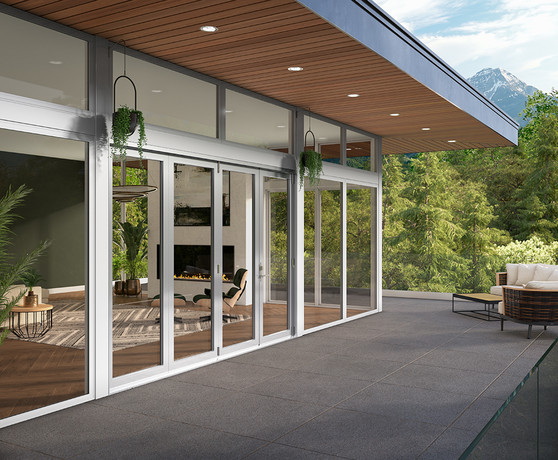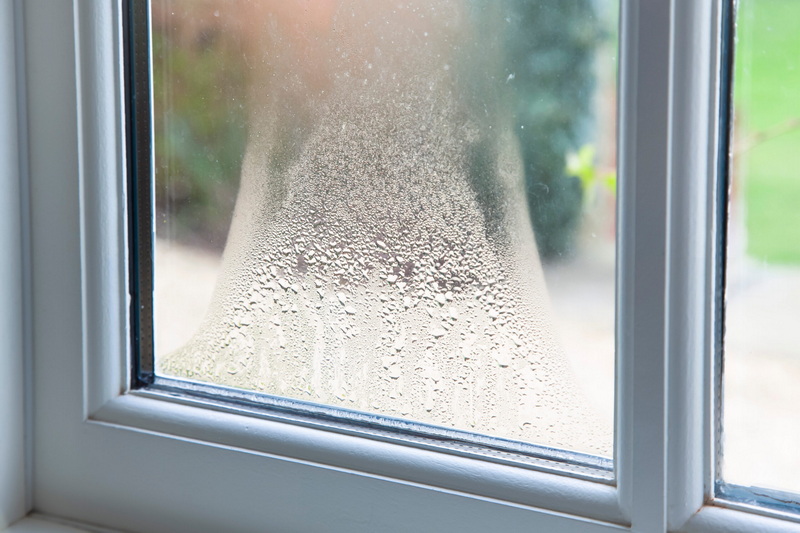English


Views: 222 Author: Dream Publish Time: 2025-01-22 Origin: Site











Content Menu
>> Advantages of Vinyl Windows
>> Disadvantages of Vinyl Windows
● Understanding Aluminum Windows
>> Advantages of Aluminum Windows
>> Disadvantages of Aluminum Windows
● Comparison Table: Vinyl vs. Aluminum Windows
● Key Considerations When Choosing Windows
>> Aluminum Windows: Sleek and Modern
>> Vinyl Windows: Versatile Designs
>> Aluminum Windows: Tough Under Pressure
>> Vinyl Windows: Consistently Durable
>> Aluminum Windows: Conductive Nature
>> Vinyl Windows: Natural Insulator
● FAQs
>> 1. Are vinyl windows more energy-efficient than aluminum?
>> 2. How long do vinyl vs aluminum windows last?
>> 3. Do I need to repaint aluminum windows?
>> 4. Are vinyl windows customizable?
>> 5. Which type of window is better suited for coastal areas?
When it comes to selecting windows for your home, the choice between vinyl and aluminum can be challenging. Both materials have their unique advantages and disadvantages, making them suitable for different needs and preferences. This article provides a comprehensive comparison of vinyl and aluminum windows, covering aspects such as durability, energy efficiency, maintenance, aesthetics, and cost. By the end, you will have a clearer understanding of which option might be better for your specific situation.

Vinyl windows are made from polyvinyl chloride (PVC), a type of plastic that is known for its durability and resistance to moisture. They are one of the most popular window options available today due to their affordability and low maintenance requirements.
- Energy Efficiency: Vinyl windows are designed to minimize thermal transfer, making them highly energy-efficient. They typically have an R-value between 4–6, indicating excellent insulation properties that can help reduce heating and cooling costs.
- Low Maintenance: Unlike wood windows that require regular painting or staining, vinyl windows only need occasional cleaning with soap and water to maintain their appearance.
- Cost-Effective: Vinyl windows are generally more affordable than aluminum or wood options. Their lower upfront cost makes them an attractive choice for budget-conscious homeowners.
- Variety of Styles: Vinyl windows come in various colors, styles, and finishes, allowing homeowners to choose options that best fit their home's aesthetic.
- Less Durable in Extreme Conditions: While vinyl is resistant to moisture, it can warp or sag under extreme heat or cold conditions.
- Limited Customization: Although there are many styles available, vinyl windows may not offer the same level of customization as aluminum frames.
Aluminum windows are made from lightweight metal frames that provide strength and durability. They are often chosen for their modern appearance and ability to support larger panes of glass.
- Durability: Aluminum frames are incredibly strong and can withstand harsh weather conditions without warping or cracking. They typically have a lifespan of 20 to 25 years.
- Aesthetic Appeal: Aluminum windows offer a sleek, modern look with thinner frames that maximize glass area. They can be painted or powder-coated in various colors to match different architectural styles.
- Resistance to Corrosion: When properly coated, aluminum is resistant to rust and corrosion, making it suitable for coastal areas where saltwater can be an issue.
- Energy Efficiency: Aluminum has a high thermal conductivity, which means it can transfer heat more readily than vinyl. This results in lower energy efficiency ratings (R-values typically between 0.5 and 1.5).
- Maintenance Requirements: While aluminum requires less maintenance than wood, it still needs periodic cleaning and may require repainting over time to maintain its appearance.

| Feature | Vinyl Windows | Aluminum Windows |
|---|---|---|
| Energy Efficiency | High (R-value 4–6) | Low (R-value 0.5–1.5) |
| Durability | Moderate (20–25 years) | High (20–25 years) |
| Maintenance | Low (occasional cleaning) | Moderate (periodic cleaning & repainting) |
| Cost | Generally lower upfront cost | Higher upfront cost |
| Customization | Limited options | Wide range of colors & finishes |
| Aesthetic Appeal | Traditional look | Modern & sleek appearance |
When deciding between vinyl and aluminum windows, consider the following factors:
1. Climate: If you live in an area with extreme temperatures, vinyl may be more suitable due to its insulating properties. However, if you require larger window sizes or live in a coastal area where corrosion is a concern, aluminum could be the better choice.
2. Budget: Vinyl windows tend to be more affordable upfront but may require replacement sooner than aluminum options. Consider your long-term budget when making this decision.
3. Aesthetics: Think about the architectural style of your home and which window material will complement it best.
4. Maintenance Preferences: If you prefer low-maintenance options, vinyl might be the way to go as it requires less upkeep compared to aluminum.
Choosing between aluminum and vinyl windows isn't just about functionality—it's about setting the tone for your home's visual appeal. Your home's architectural style can significantly impact the window choice.
Ideal for those who love contemporary design, offering thin frames that maximize views and light. Aluminum windows are typically available in a range of factory finishes but are not paintable, which can limit customization options.
Vinyl comes in various textures and colors, including options that mimic wood. Colored vinyl windows can perfectly complement your specific interior or exterior needs, offering greater flexibility in style adjustments. Black vinyl windows are particularly trendy among homeowners today.
If your home's architecture leans towards modern design with clean lines, aluminum is a clear winner. However, vinyl provides unmatched adaptability for those prioritizing color flexibility while wanting a classic look.
Window replacement is a major renovation project; you want your new units to last a lifetime. Choosing durable windows ensures they withstand harsh weather conditions over time.
Renowned for their strength, capable of supporting large panes of glass while withstanding severe weather conditions. Typical lifespan – 20–25 years; however, they are prone to scratching and denting if not maintained properly.
Excellent performance in various climates; resistant to rotting, rusting, discoloration, and corrosion. They have a typical lifespan of 30–40 years with minimal maintenance required.
Energy efficiency is perhaps the number one reason homeowners decide to replace their old windows. With heating and cooling bills on the rise, new windows can significantly boost your home's overall thermal performance.
Metal frames can transfer heat and cold efficiently but result in lower energy efficiency due to high U-values (heat loss).
Vinyl frames provide better insulation properties by minimizing heat transfer through the frame itself. Opting for Energy Star-rated models ensures optimal energy efficiency—reducing reliance on heating/cooling systems while saving on energy costs over time.
Both vinyl and aluminum windows are relatively low-maintenance compared to traditional wooden frames; however:
- Vinyl Windows require virtually no maintenance beyond occasional cleaning with soap and water.
- Aluminum Windows, while needing less upkeep than wood frames, do require regular cleaning to prevent rusting or corrosion buildup—especially in humid climates where moisture accumulation is common.
The ability to customize your windows significantly impacts how well they complement your home's design:
- Aluminum Windows offer structural customization with a modern aesthetic but have limitations on color options since they cannot be painted after installation.
- Vinyl Windows, on the other hand, provide extensive color choices along with finishes that mimic wood grain—allowing homeowners significant flexibility in matching their window designs with existing home decor.
Vinyl tends to be more cost-effective overall when comparing frame material options available for window replacement projects:
- Homeowners can expect average costs ranging from $1,090 – $1,300 for standard triple-pane vinyl casement windows.
- In contrast, aluminum window prices vary widely based on features but generally start higher due primarily to manufacturing processes involved in creating durable metal frames.
In conclusion, both vinyl and aluminum windows have unique benefits and drawbacks worth considering before making a purchase decision:
- Vinyl shines when it comes down to energy efficiency alongside low maintenance requirements—making them ideal for homeowners focused on reducing heating/cooling costs over time.
- Conversely, if aesthetics play an essential role alongside durability—especially in modern homes—aluminum may prove advantageous despite its lesser insulation capabilities compared against vinyl counterparts.
Ultimately though—the best choice hinges upon individual preferences regarding climate conditions present within specific geographic locations combined with budget constraints alongside desired aesthetic appeal!

Yes! Vinyl windows generally outperform aluminum due to superior insulation properties stemming from their PVC construction—resulting in lower energy bills overall!
Both types typically last around 20–25 years; however—vinyl may last longer under certain conditions depending upon environmental factors affecting performance longevity!
Yes! While they require less maintenance than wooden frames—they still need periodic attention such as repainting every few years depending upon exposure levels experienced throughout seasons!
Yes! While offering limited color choices—they come equipped with various styles allowing customization options tailored specifically towards matching existing home decor effectively!
Aluminum tends preferred due primarily towards corrosion resistance when properly treated—but both materials perform adequately given proper maintenance practices followed regularly!
[1] https://www.ecolinewindows.ca/aluminum-vs-vinyl-windows-comparison-costs-pros-and-cons/
[2] https://elegantviewwindows.com/pros-and-cons-of-vinyl-windows/
[3] https://www.americanwindowproducts.com/the-pros-and-cons-of-aluminum-windows/
[4] https://www.fixr.com/articles/vinyl-vs-aluminum-windows
[5] https://paradigmwindows.com/vinyl-vs-aluminum-windows/
[6] https://www.windowresource.com/understanding-vinyl-windows-pros-and-cons/
[7] https://www.windowresource.com/advantages-and-disadvantages-of-aluminum-windows/
[8] https://todayshomeowner.com/windows/guides/vinyl-vs-aluminum-windows/
[9] https://www.windowscanada.com/whitepages/aluminum-vs-vinyl-windows.html
[10] https://www.mhiwindows.com/vinyl-windows-advantages-disadvantages/
[11] https://nanyangaluminium.com/benefits-of-aluminum-windows/
[12] https://archexteriors.com/vinyl-vs-aluminum-windows/
[13] https://ecochoicewindows.ca/vinyl-vs-aluminum-windows/
[14] https://energyswingwindows.com/blog/what-are-the-pros-and-cons-of-vinyl-windows/
[15] https://fintecnic.pl/en/blog/aluminium-windows-advantages-and-disadvantages/
[16] https://windowdepotcolumbuseast.com/cost-of-aluminum-windows-vs-vinyl-guide/
[17] https://www.angi.com/articles/pros-and-cons-aluminum-vs-vinyl-windows.htm
[18] https://www.nachi.org/vinyl-windows.htm
[19] https://www.southcoastwindows.co.uk/blog/upvc-vs-aluminium-windows/
[20] https://advancedwindowsusa.com/vinyl-or-aluminum-windows-which-is-better
[21] https://unitedhomeexperts.com/the-pros-and-cons-of-vinyl-windows/
[22] https://aluminiumrevival.com.au/aluminium-windows-restoration-basics/benefits-and-downsides-of-aluminium-windows/
[23] https://www.windowworldlongisland.com/blog/vinyl-vs-aluminum-windows-comparing-their-benefits-and-limitations/
[24] https://magicwindow.ca/blog/vinyl-vs-aluminum-windows-advantages-and-disadvantages/
[25] https://door-filipek.pl/en/types-of-aluminum-windows,-opening-methods,-functionality,-advantages-and-disadvantages/
[26] https://www.thisoldhouse.com/windows/aluminum-vs-vinyl-windows
[27] https://www.wizehomedirect.com/blog/pros-and-cons-of-vinyl-windows
[28] https://www.greenmatch.co.uk/windows/aluminium
Seven Requirements for External Doors And Windows of Passive Rooms
How Much Do You Know about The Design Standards for Aluminum Alloy Door And Window Dimensions?
Welding Vs Stainless Steel Fabrication: Understanding The Manufacturing Process Differences
Stainless Steel Fabrication Vs Powder Coated Steel: Durability And Cost Comparison
CNC Machining Vs Stainless Steel Fabrication: Pros And Cons for Industrial Use
Stainless Steel Fabrication Vs Carbon Steel Fabrication: Key Differences Explained
Stainless Steel Fabrication Vs Aluminum Fabrication: Which Is Right for Your Project?
Stainless Steel Grades 201 Vs 304: Cost Vs Performance Breakdown
316L Vs 316 Stainless Steel Grades: Which Is Better for Corrosion Resistance?
Comparing Austenitic Vs Martensitic Stainless Steel Grades: What You Need To Know?
